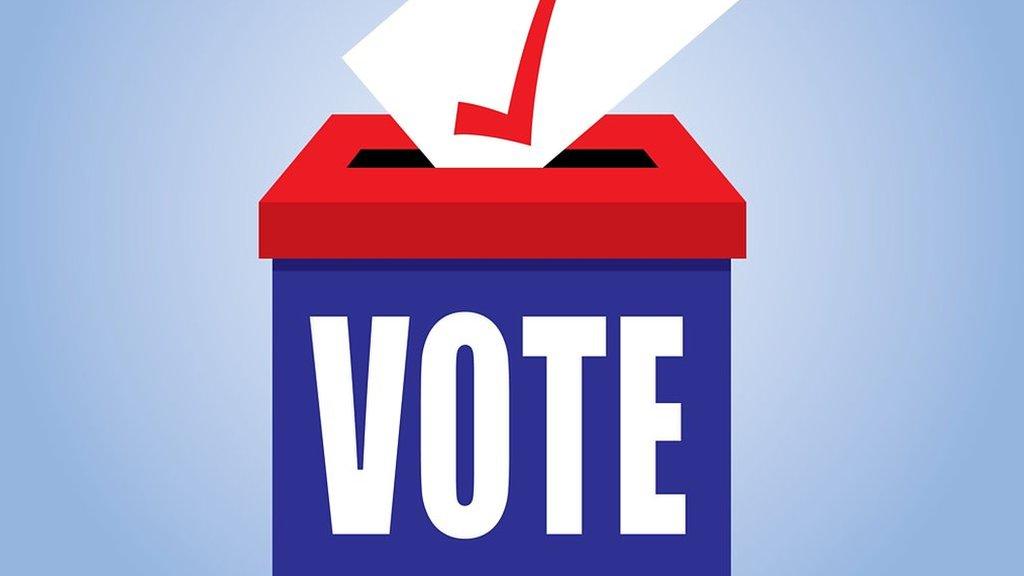General election 2019: How to vote in the general election
- Published
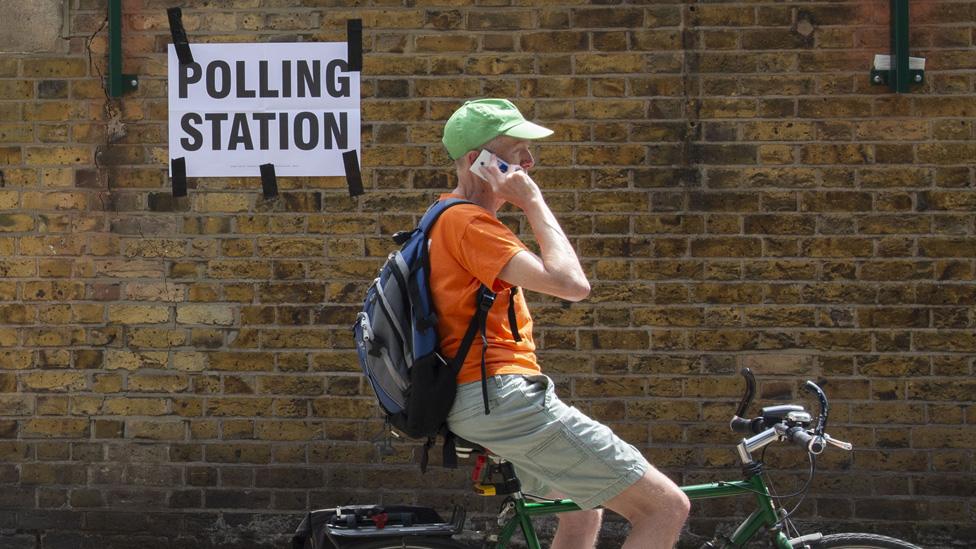
The general election takes place on Thursday 12 December - a chance for the UK's 46 million voters to elect a new government. But how does the day actually work?
Are you a voter?
The deadline for registering to vote in this general election was on 26 November.
If you are on the electoral register, you should have received a polling card. This contains your polling number and polling station address.
How do I find my polling station?
Polling stations are usually in public buildings like community centres, village halls, churches and schools. However, the timing of this election means some school halls are already booked for nativity plays.
If you have not received a polling card, or have lost it, contact your local authority's election office, external to find out where to vote.
You must vote at the polling station to which you have been assigned any time between 07:00 and 22:00 GMT on election day. If you are in a queue when the polls shut, you are guaranteed the opportunity to vote.
How does a general election actually work?
Can I vote without my polling card?
Yes. The polling card is for your information, but taking it can speed things up.
When you arrive, staff will take your details and cross your name off their checklist.
In Northern Ireland, staff will also ask for a form of photographic ID.
How do I vote?
You will be given a ballot paper listing candidates and parties in the constituency where you vote. It will feature an official mark or number to combat fraud.
Take it to a screened booth, where you will find a pencil to vote with, although you can use your own pen if you prefer.
Read the ballot paper carefully and then vote for your chosen candidate by putting an X in the box next to their name. If you mark any more boxes, your paper will be invalid.
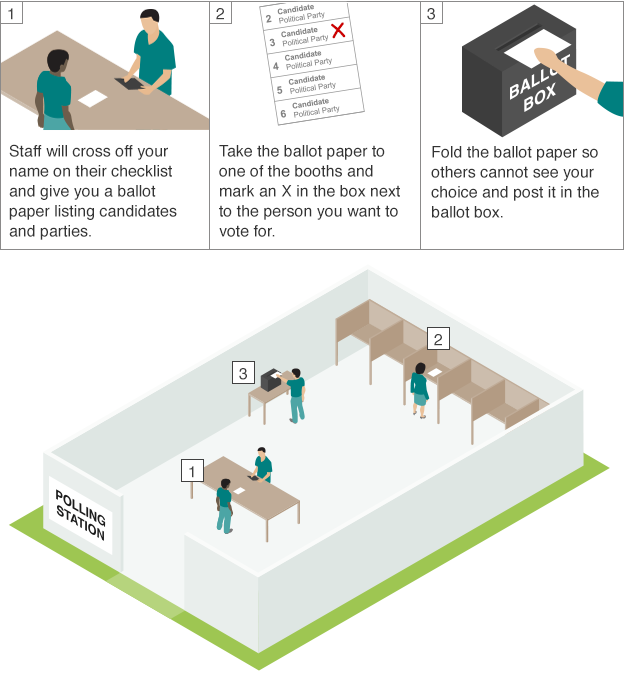
However, if you do make a mistake you can get another ballot paper, as long as you have not put it in the ballot box.
Votes made with a tick or even a smiley face may be counted if the voter's choice is clear,, external but will be disqualified otherwise.
When you are ready, fold the ballot paper - for privacy - and put it in the box where the votes are collected.
Can I spoil my ballot paper?
Yes. Some people spoil their votes as a protest vote. While these do not count towards any candidate, the votes are recorded.
Only 0.2% of votes were rejected, external for being invalid at the 2017 general election.
Can I vote without going to the polling station?
Yes - as long as you have met the deadline to register to vote by post, or to appoint a proxy to vote on your behalf.
The deadline to apply for a postal or proxy vote in Northern Ireland was 17:00 GMT on 21 November. The deadline in the rest of the UK was 26 November.
For proxy votes a deadline of 4 December has been set.
Postal votes must be received by the time the polls close.
You must say why you are unable to vote in person on the proxy application form., external

The general election explained

Can my children come in with me?
Yes. Bringing children to the polling station is encouraged, because it is seen as educating them for the future about how the democratic process works.
I have a disability - can I get help with voting?
Yes.
You can ask the presiding officer to mark the paper for you, or bring a close family member who is over 18, or someone else who is eligible to vote, like a support worker, with you.
If you have a visual impairment, you can ask for a device that allows you to mark your own ballot paper. A large print version should also be available.
Nikki Fox on the hurdles and options for disabled voters
Polling stations are selected so that wheelchair ramps and disabled parking spaces are available.
If a voter cannot enter the polling station because of a physical disability, the presiding officer may take the ballot paper to the elector.
For help, call the Electoral Commission on 0333 103 1928.
A dedicated helpline for anyone with a learning disability, their families and carers, and polling station staff has also been set up by Mencap, a partner of the Electoral Commission.
The number is 020 7696 6009.
Is voting compulsory?
No. It is entirely up to you whether or not you vote.
The average turnout in the UK for general elections since 1918 has been 72.9%.
Who should I vote for?
We can't tell you - we are the BBC and have strict impartiality rules - but if you want to read around, here's a link to our party guides and our policy guides.
Some people choose to vote tactically in an election - this is what that means.
Who runs the polling stations and how are the votes counted?
Staff are recruited to work at polling stations via the electoral services department in local councils.
Jobs available include being the presiding officer, conducting the ballot, counting the votes and processing the postal votes.
These roles are paid at different rates, with some councils offering more than £300 for certain positions.
When will we know who won the election?
The votes will start to be counted as soon as the polls close. Constituencies will start to declare their results within the first few hours of the vote. A large number are expected between 03:00 and 05:00 GMT on Friday.
It is difficult to predict when a new government will be formed, and it depends on how close the election is.
- Published4 November 2019
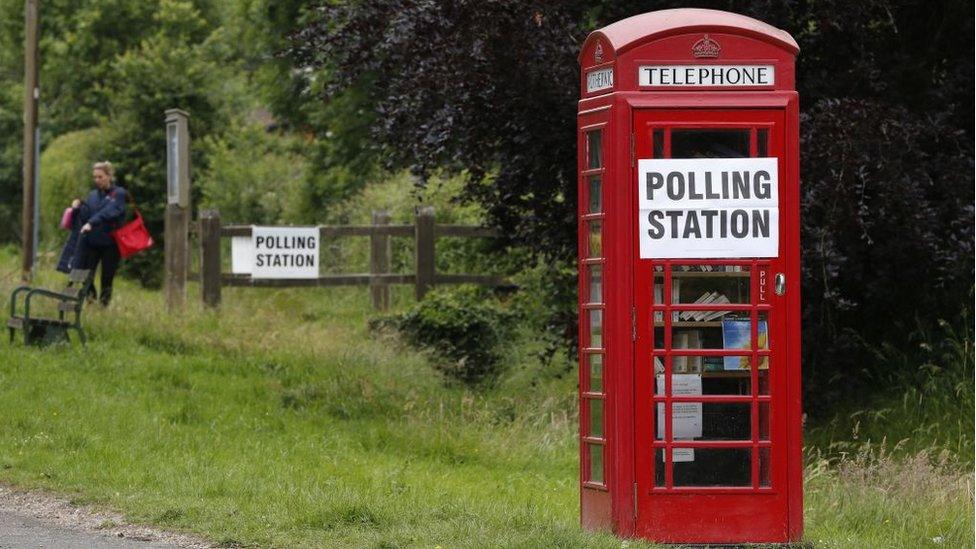
- Published31 October 2019
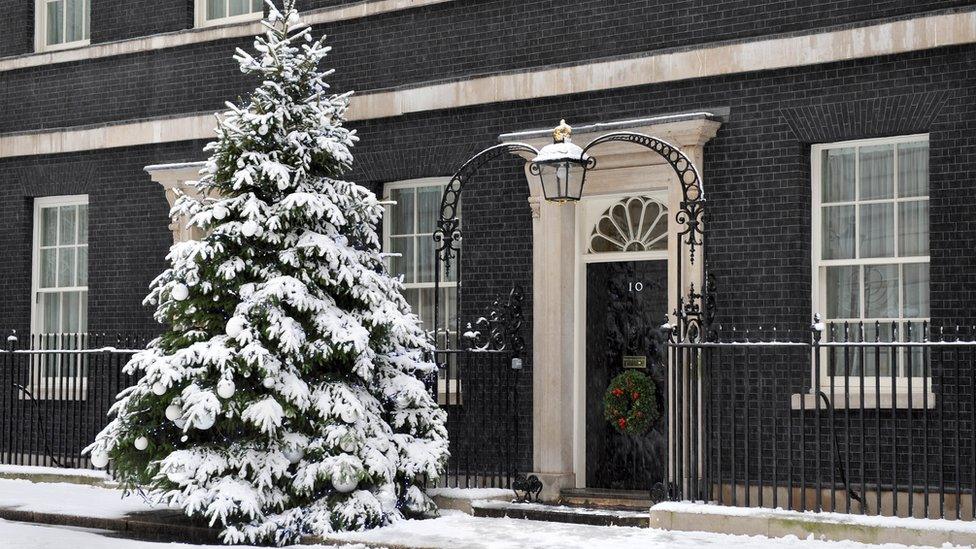
- Published30 October 2019
